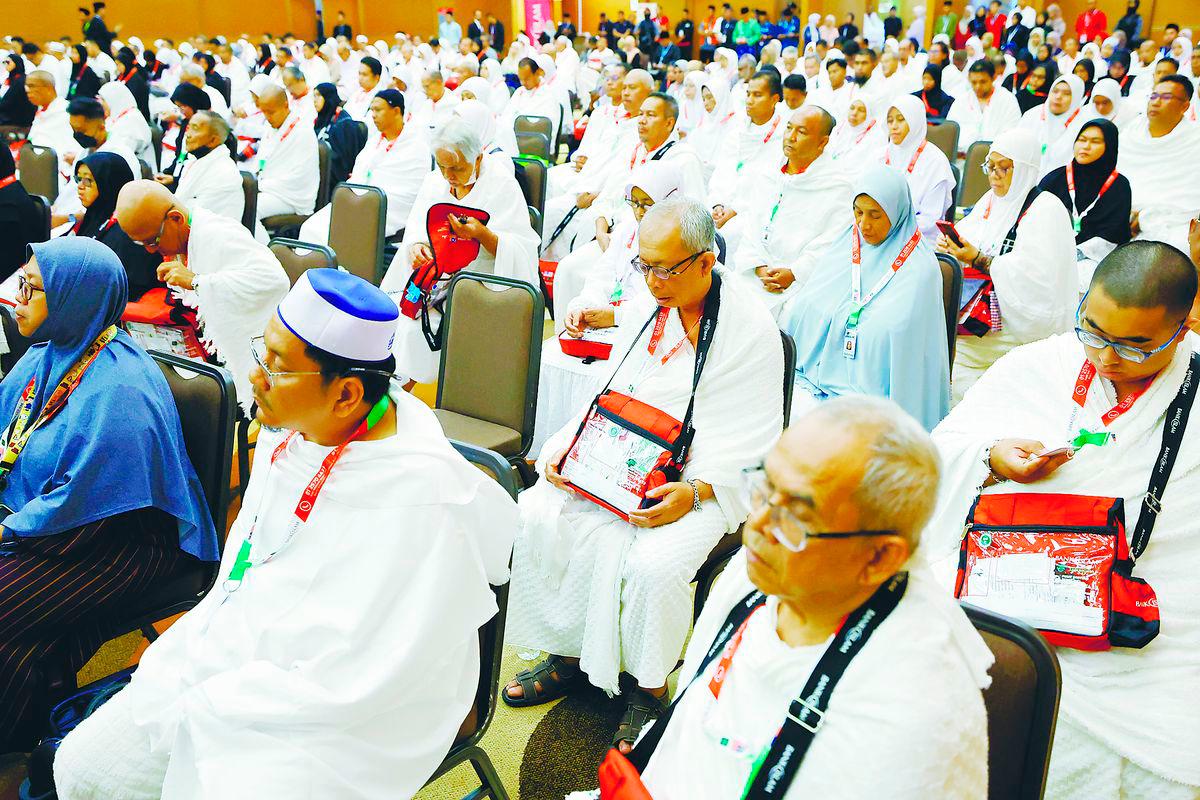PETALING JAYA: Health restrictions for next year’s haj may have sparked concern among would-be pilgrims, but Islamic scholars say the measures are rooted in faith, protecting life, preventing harm and upholding the true spirit of syariah.
International Islamic University Malaysia assistant professor Dr Abu Hafiz Salleh Hudin said the new rules mirror one of Islam’s core principles that no act of worship should endanger life.
“Although difficult for some, the restrictions do not contradict the essence of syariah. Haj is only obligatory for those who are physically and financially capable.”
He added that those unfit due to serious or contagious illnesses are not accountable for missing the pilgrimage.
“Islam is compassionate and realistic. It never burdens a soul beyond its capacity.
“Those prevented from going because of illness still receive spiritual reward for their sincere intention.”
Citing Surah al-Imran, verse 97, “Pilgrimage to the House is a duty owed to Allah by those who are able to undertake the journey”, he said the concept of istita’ah (ability) now extends to modern health and safety standards.
“In the past, ability meant having strength, means and safe passage. Today, it also includes compliance with measures that protect pilgrims’ wellbeing.”
He acknowledged the disappointment felt by elderly or ill Muslims who have saved for the journey but reminded them that divine reward lies in intention.
“The Prophet said ‘actions are judged by intentions.’ If someone is sincere but prevented by factors beyond their control, their reward remains as though they had performed haj.”
Abu Hafiz said the rules reflect Islam’s call to preserve life.
“Restricting high-risk individuals helps prevent disease outbreaks and protects millions gathered in one place, fulfilling the Quranic principle that saving one life is like saving all mankind.”
He urged Malaysian religious bodies and haj course organisers to emphasise health readiness and support those unable to perform the pilgrimage.
“Those affected should be reminded that their patience and intention are honoured before Allah. Sometimes, enduring such a test brings even greater reward than the pilgrimage itself.”
Universiti Kebangsaan Malaysia public health specialist Prof Dr Sharifa Ezat Wan Puteh said Saudi Arabia’s tighter health rules for the 2026 haj are justified, given the high costs and risks involved.
“If people fall sick there, the cost would be huge, borne by the pilgrim, the Saudi authorities and the Malaysian government.”
She added that most elderly pilgrims have multiple chronic illnesses, making health screenings vital to ensure only the fit could handle the physically demanding journey.
“Haj is an arduous journey. The screenings make sure only those capable of handling the strain are allowed to go.”
However, she said the rules could have drawbacks.
“Many may not be able to participate because they might not make the cut. Medical facilities would also now be run by Saudi personnel rather than Tabung Haji (TH), so those who fall ill may face financial difficulties if they need hospital care.”
Saudi Arabia’s new policy bars individuals with serious chronic illnesses, infectious diseases, high-risk pregnancies, or conditions affecting mobility and cognition. The move aims to protect pilgrims’ health during the mass gathering in harsh desert conditions.
TH said the policy aligns with the Saudi Ministry of Haj and Umrah’s stricter requirements prioritising safety and comfort.
“Individuals with certain medical conditions will not be eligible for haj. These measures ensure the safety and comfort of all pilgrims,” TH said, adding that most Malaysian personnel sent to the Holy Land each year are Health Ministry medical staff.
Sharifa said while the rules may disappoint some, they strike a necessary balance between faith and safety.
“The intention is not to exclude but to protect. Haj is a sacred duty, but it also demands endurance.”









